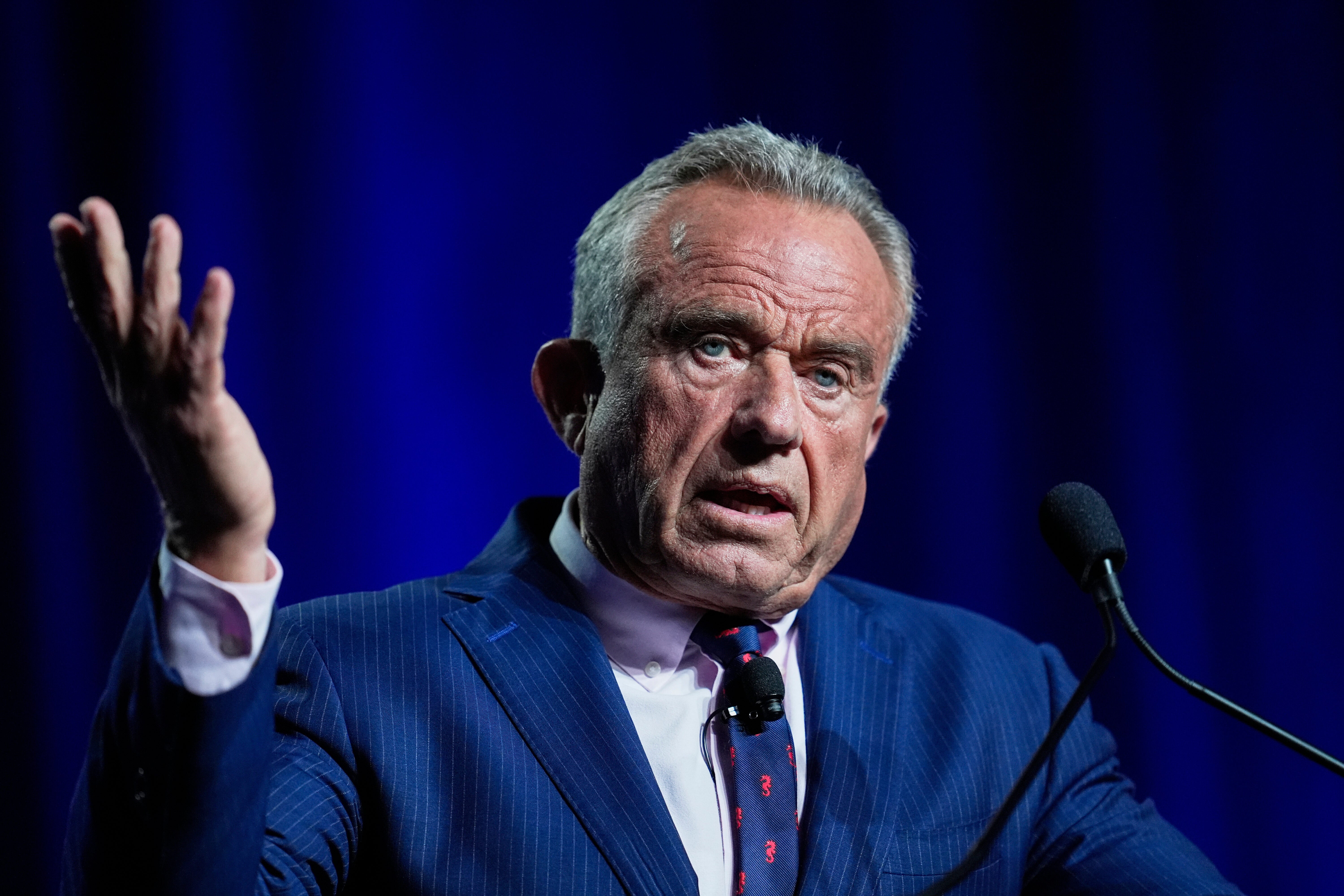ARTICLE AD BOX
The Department of Health and Human Services denied that it would create an autism health registry after advocates for the autistic community expressed fear about reported plans for one.
An HHS official insisted to The Independent that no such plans existed.
A “real-world data platform will link existing datasets to support research into causes of autism and insights into improved treatment strategies,” the official said.

Earlier in the week, National Institutes of Health Director Jay Bhattacharya said that the department planned to gather health information on people diagnosed with autism spectrum disorder.
During a meeting of the Council of Councils, Bhattacharya said that the plan would integrate “diverse data enabling research to examine complex factors influencing ASD rates.”
He said the proposal would integrate data from pharmacy chains, health organizations, as well as wearable technology, among other information, to conduct real-time health monitoring, work on disease registries and develop drugs.
This set off alarm bells for people with autism, their loved ones, advocates and researchers. Specifically, they expressed concern about a lack of clarity about how intrusive the data gathering might be.
“We call upon HHS to include caregivers, individuals with autism, and established autism data scientists in a conversation around the need for and use of an autism registry,” the Autism Science Foundation said in a statement released Thursday.
“Failure to articulate the sources, uses, and consenting protocols around this registry may lead to people with autism avoiding or refusing medical care for fear of their data being shared without their permission.”
Many also feared that a national autism registry might convince fearful parents not to seek a diagnosis or search for services in an effort to protect their children’s privacy or shield them from unknown government action.
The plan emerged on the heels of Robert F. Kennedy Jr at a press conference last week discussing the Centers for Disease Control’s (CDC) latest study showing that 1 in 31 children had a diagnosis of autism. Kennedy then painted autism in tragic colors.
“These are kids who will never pay taxes. They’ll never hold a job. They’ll never play baseball. They’ll never write a poem. They’ll never go out on a date,” he said. In fact, countless people with autism live normal or near-normal lives.
His remarks triggered a rare joint statement from autism advocacy groups to push back on Kennedy’s language, which it considered degrading.
Kennedy complained of an “epidemic” of autism, though the actual CDC report attributed the jump from 1 in 36 to 1 in 31 children to advances in screening, particularly for nonwhite and lower-income children.
Both President Donald Trump and Kennedy have espoused the long-debunked myth that the measles, mumps and rubella vaccines play a role in children being diagnosed with autism.
Kennedy said plans to reveal what causes autism by September, even though researchers have been working to determine that since the 1920s.
Trump himself has already floated his own guesses at a cabinet meeting: “You stop taking something, you stop eating something, or maybe it’s a shot.”
Autism researchers cautioned Kennedy to not move too quickly or ignore the normal operating procedures for research into autism.
“We fully support genuine advances in the field, so we urge the secretary to register the planned study protocol, provide time for public comment, include independent data analysts, and make the data available to the scientific community,” said a statement by the Coalition of Autism Scientists.
Kennedy, who is not a scientist nor a medical practitioner, has long come under criticism for promoting the debunked link between autism and vaccines. Despite this, all but one Republican senator, former majority leader Mitch McConnell, supported his confirmation to lead the sprawling health department.









 English (US) ·
English (US) ·